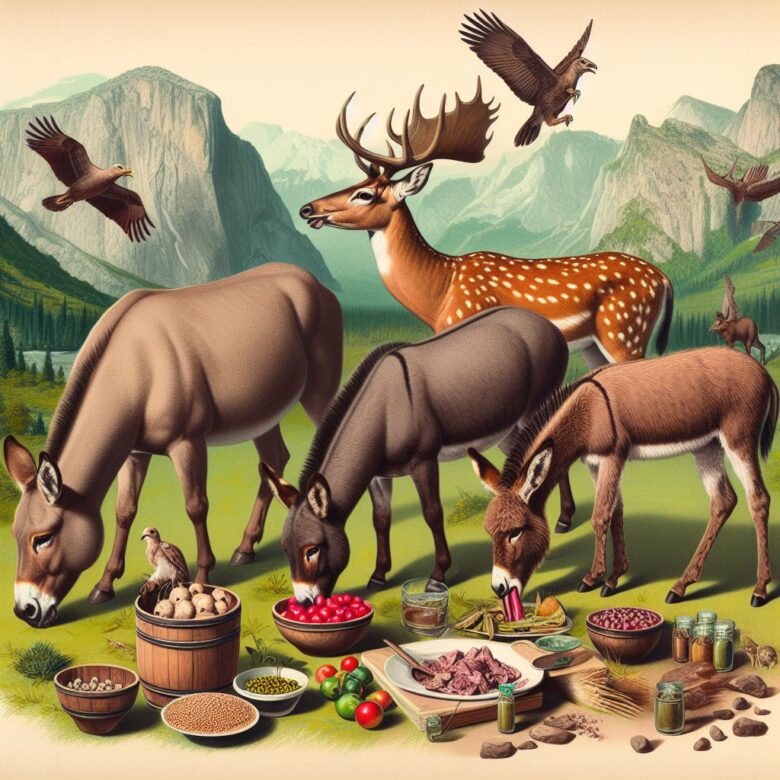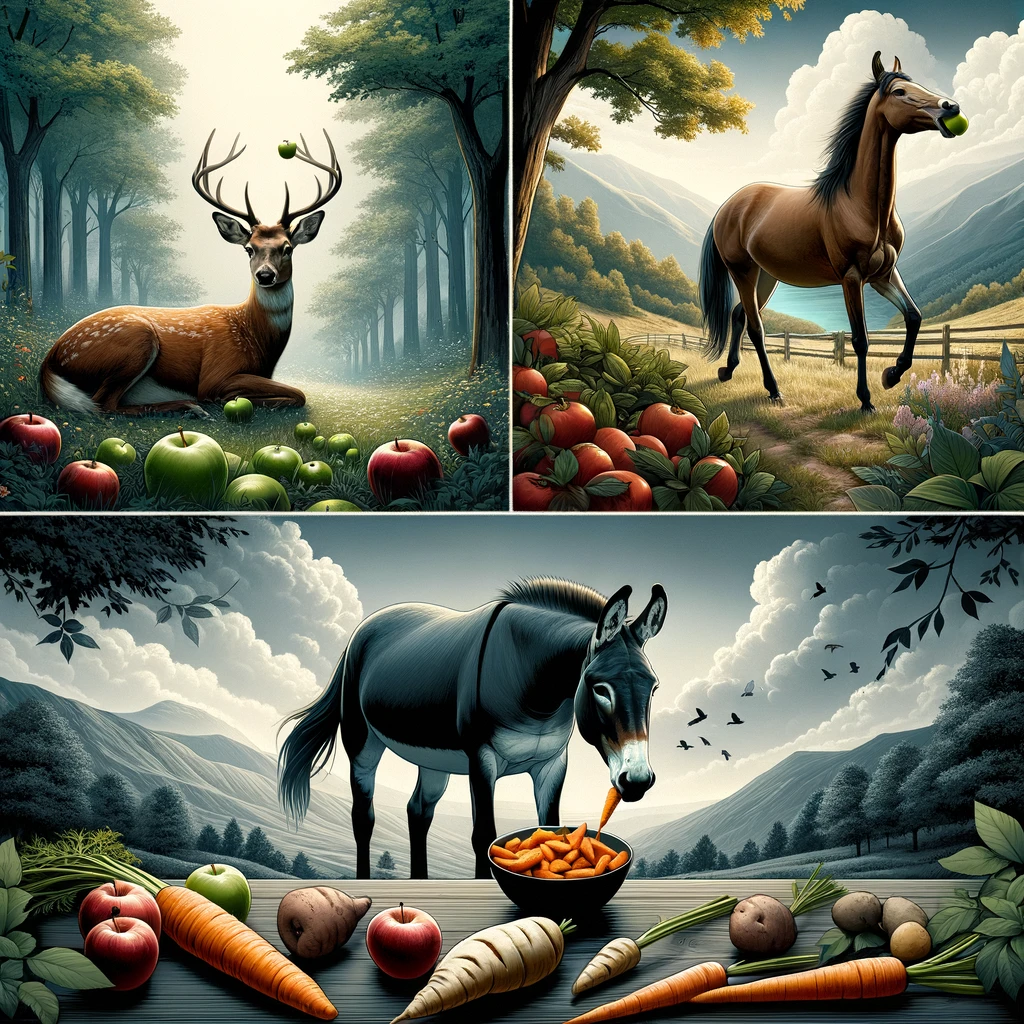Ever found yourself wandering through the great outdoors, spotting a graceful deer, a sturdy horse, or a charming donkey, and wondering, “What on earth do these guys eat to maintain their fabulous figures?” Today, we’re diving into the fascinating world of nature’s diners, specifically looking at the diets of deer, horses, and donkeys. So, grab your metaphorical fork and let’s dig in!
Deer: The Forest Grazers
First up on our nature menu are deer. These forest beauties are like the sophisticated food critics of the animal world; a deer’s diet is as varied as it is interesting. Primarily, deer are browsers, not the internet kind, of course. They feast on a smorgasbord of leaves, twigs, fruits, and nuts. Picture a deer as that friend who loves trying a little bit of everything at a buffet, from the salad bar to the fruit display. They have a particular fondness for tender shoots and buds, especially in spring when the forest is like an all-you-can-eat salad bar.
Horses: The Meadow Munchers
Moving on to horses, these meadow munchers have a diet that’s a bit more straightforward but no less fascinating. Horses are grazers by nature, which means they prefer to keep their heads down, enjoying the vast salad bowls of grasses and legumes that meadows and pastures provide. Think of horses as the health-conscious friends who stick to the greens section, munching away with a content smile. They need a constant supply of fiber to keep their digestive systems running smoother than a well-oiled machine, so grass plays a huge part in their diet.
Donkeys: The Desert Diners
Last but definitely not least, let’s talk about donkeys. These hardy creatures are the survivalists of the dining world, adapted to thrive in more arid environments where food isn’t always a buffet but more of a scavenger hunt. Donkeys have a diet that includes grasses, but they’re also pretty good at making do with shrubs, bark, and plants that other grazers might turn their noses up at. Imagine a donkey as that friend who’s always up for an adventure, even when it comes to food, willing to try the dishes that others might shy away from.
Their Favorite Treats
Just like us, deer, horses, and donkeys have their own version of candy bars and ice cream, treats that they would probably do a little happy dance for if they could. Let’s uncover what tickles their taste buds, shall we?
Deer have a sweet tooth that could rival any kid in a candy store. Their favorite treats include apples, pears, and other sweet fruits that they stumble upon during their forest escapades. Imagine a deer coming across an apple on the ground; it’s like hitting the jackpot for them. These fruits are like nature’s candy, offering a burst of sweetness and energy. So, if you ever find deer frequenting your backyard, chances are they’ve sniffed out some tasty treats in your garden or compost.
Horses, those majestic creatures, are not immune to the allure of a good treat. While they’re often seen chomping away contentedly on hay or grass, offer them a carrot, an apple, or even a sugar cube, and you’ll instantly become their best friend. These treats are like horse-approved fast food, giving them a quick and delicious energy boost. Just like us indulging in a favorite snack, horses relish these sweet moments (but moderation is key, as we all know too well).
Donkeys, with their hardy nature and ability to adapt, are not too picky when it comes to their treats. However, they do enjoy a variety of fruits and vegetables, much like their horse cousins. Carrots, apples, and even sweet potatoes can make for a delightful donkey snack, providing both nutrition and a bit of indulgence. It’s the simple pleasures in life, right? Donkeys appreciate these moments of culinary delight, showcasing their less talked about, softer side.
A Note of Caution
While it’s tempting to feed these animals their favorite treats, it’s crucial to remember that their health and safety come first. Always ensure that any treats given are safe for the animal and offered in moderation to avoid any health issues. And, of course, respect local wildlife regulations and guidelines.




